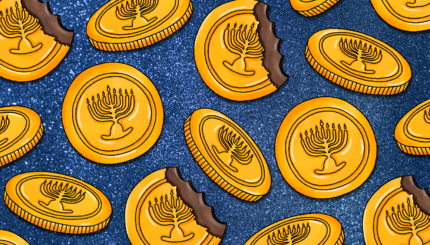Actually, scratch that. Please look now – right now – and see this: the point of Passover isn’t the seder. Yes, Passover’s symbols, stories, foods and traditions can be highlights of the year. For millions, that’s what a seder is, and with good reason. Passover is a Jewish birth certificate – the story of Jewish identity birthed from exile, bondage and liberation that became a calling for freedom, faith and justice.
That’s why the Passover seder is partly about remembering who we are, but actually being who we’re meant to become is another story. The Seder can remind us, but can’t fulfill the reminder. That’s why the Seder isn’t the whole point.
Rather, Passover’s point mainly is what comes after the seder. Passover calls us to live into real and durable liberation for ourselves, each other and everyone. Passover arouses steps toward freedom and justice we must take for ourselves, each other and everyone. If we don’t see that point – if we don’t aspire to do that and be that – then we miss Passover’s point.
Passover’s point, it turns out, is to see different so that we can be different.
Consider Passover’s symbols. Rabbi Irving (“Yitz”) Greenberg teaches that matzah is either a “bread of affliction” or “bread of freedom,” depending on our point of view. What if we could transform our afflictions into liberators? It matters how we see our afflictions, and ourselves.
Same with maror, the seder’s bitter herbs. Bitter (mar) shares its Hebrew root word with the intoxicating scent of myrrh (mor) celebrated in the Song of Songs, the Bible’s enduring love song traditionally read on Passover. Is something bitter or potentially intoxicating? What if we healthfully could transform our bitterness into love? Again, it can depend on our point of view.
We speak of freedom, but what kind of freedom – freedom from (avoidance) or freedom to (rights)? We stand up to power, but what kind of power – power over (control) or power to (capacity)? Yet again, it all depends on how we see.
Passover marks the 50-day Omer journey to Shavuot: we prepare to receive revelation anew. Do we see Torah (or Jewish life, or spiritual life) as obligation, or as opportunity?
Passover asks us to refine our vision for a key purpose: only when we see different can we be different. Only when we can see clearly both the binds that wrongly restrain us (individually and collectively), and the possibility of journeying beyond them, can we actually take those steps. The point is the steps we take and the lives we lead, not merely symbols, stories and songs.
Until we see that – until we can see ourselves really free – we can’t fulfill the seder’s promises of liberation. As Mark Twain put it, “You can’t depend on your eyes when your imagination is out of focus.”
Freedom comes after the Passover seder. What steps forward will you take toward freedom?



